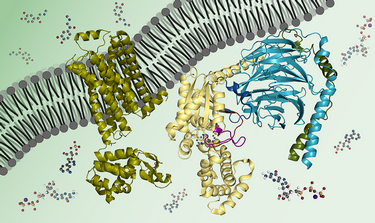Biochemistry: Biomolecules, Methods, and Mechanisms
Enhance your scientific thinking and data analysis skills with this in-depth adventure through biochemistry.
Enhance your scientific thinking and data analysis skills with this in-depth adventure through biochemistry.
Enhance your scientific thinking and data analysis skills with this in-depth adventure through biochemistry.
Do you want to prepare for medical school, study a STEM field, become a research scientist, or transition to a career in the booming biotechnology industry? Or maybe you just want to understand the chemical reactions that govern life itself. Join Professor Yaffe, an MIT professor and practicing surgeon, as he guides you through the science that inspires countless doctors, researchers, and students alike.
Undergraduate introductory biology (biochemistry and molecular biology);
Undergraduate introductory chemistry;
Undergraduate organic chemistry I (chemical structures and biological mechanisms)




